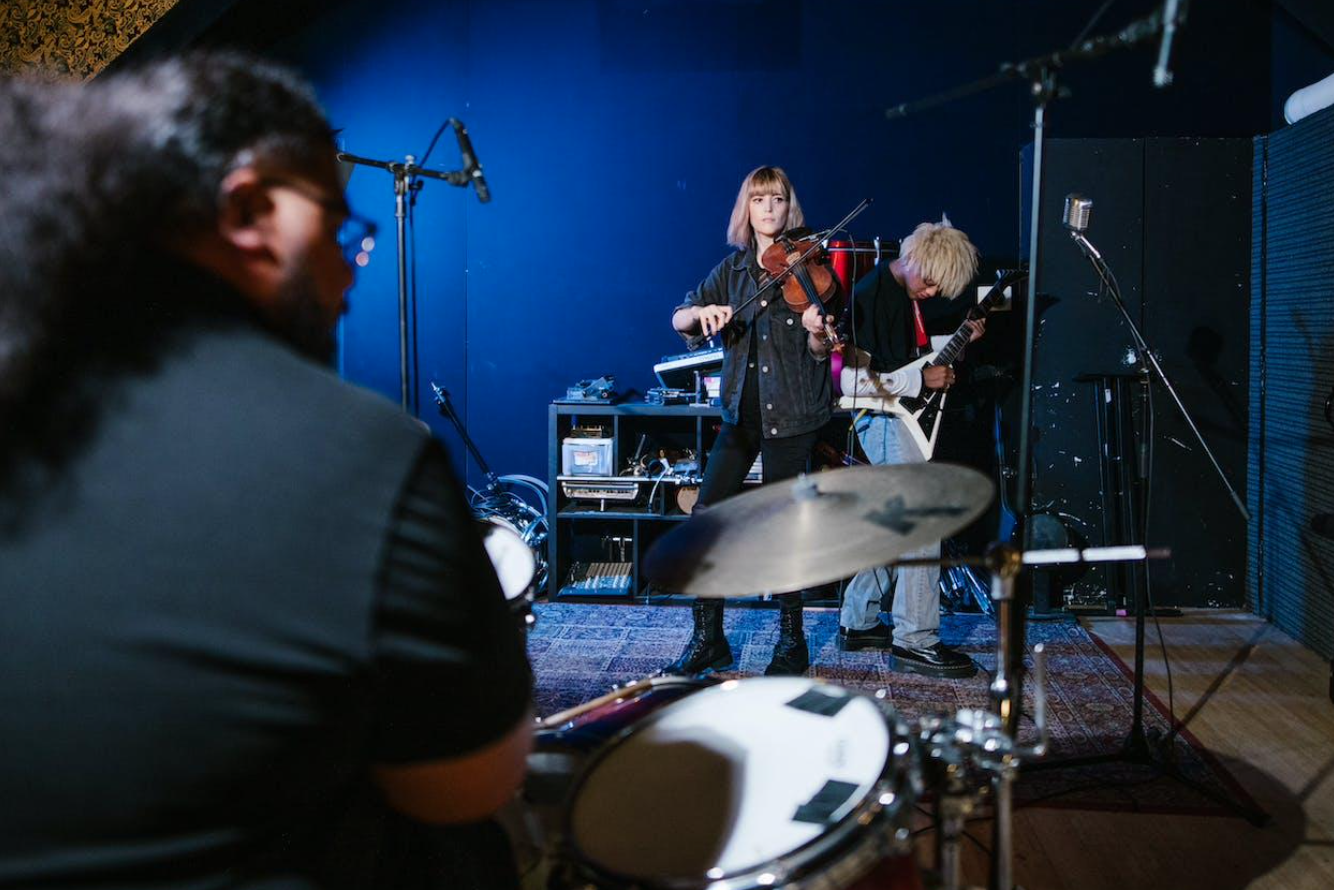Unfortunately, while you have certain rights regarding freedom of expression, this doesn’t necessarily override the local ordinances related to noise.
Having a garage band is one of the most common musical pursuits. After all, the most popular bands all started in a garage, and many aspiring musicians hope for the same success. Even if your garage band is as successful as the greats, though, playing in a band has plenty of advantages. It’s a way to creatively express yourself, build bonds with other members, and create memories that will last forever. et, sometimes it can feel as though there can be restrictions on this particular type of freedom of expression.
Naturally, playing in your garage tends to generate a certain amount of noise. While you might see this as your right to utilize your talents and communicate ideas, your neighbors might consider it to infringe on their own expectations of peaceful living. Unfortunately, in some cases, noise ordinance legislation might be used to penalize or even silence you.
What Should You Know About Ordinances?
Noise has been the subject of legislation for more than 50 years, now. The Noise Control Act of 1972 recognized that noise could be detrimental to the environment and people’s health. This might seem like a way to give neighbors a legitimized excuse to complain about the volume of your music. But there’s certainly some truth to it, as exposure to loud noise is proven to deteriorate hearing over time. Not to mention that, for some people, it can be a stressful presence.
It’s worth mentioning that, on a day-to-day level, your band isn’t likely to be directly affected by the federal aspect of the Noise Control Act. Nevertheless, the act did provide guidelines for local authorities to base their noise ordinances on. Depending on where you live, your garage band’s rehearsals can be affected by how local authorities treat noise. Some of the variations in noise ordinance you should be aware of include:
- Times of day: Perhaps the most common variance of noise ordinance is the implementation of quiet hours. For instance, New York City prohibits noise from the hours of 10 p.m. to 7 a.m. The good news is that these types of ordinances recognize that musicians have a right to express their creativity at reasonable hours.
- Decibel levels: Even outside of quiet hours, ordinances may place decibel limits on how loud your band can play in a residential area. For instance, Los Angeles requires noise to be kept below 50 decibels during the day. Playing in excess of this could give your neighbors grounds for a complaint.
So, what happens if you breach these ordinances? Well, again, this can depend on where you live. In some places, law enforcement may simply advise you that you’re in breach of the ordinance as a warning and little else. In other areas, you may receive a hefty fine. If you live in a privately regulated neighborhood with a homeowners association (HOA), you could even face eviction. It’s important, then, to research the ordinances in your area to make sure you can freely rehearse while avoiding issues.
Minimizing Noise and Penalties
Even if you live in an area with strict noise ordinance penalties, you don’t have to throw in the towel on your musical dreams. There are a few steps you can take to minimize the volume those outside your property can hear. This reduces complaints, which puts you at less risk of fines and other penalties.
Your first step should be soundproofing your garage. You need to be methodical here to get the most effective results. Start by hanging sound-dampening material, such as heavy fabric or foam, over the inside of your door. It’s also wise to fill any gaps around the door, too, with weatherstripping or similar materials. As much as possible, line your walls and ceilings with soundproofing insulation, as this absorbs the sound from inside your garage.
In some instances, you may not be able to soundproof to the extent that your neighbors aren’t able to hear your band play. This is where being open to communication is really important. Talk to them about when you plan to rehearse and ask about their concerns. Perhaps be open to arranging a schedule that doesn’t disturb anyone around you. Your efforts can minimize the potential for neighbors to call the cops about noise and build good relationships. You might even get a few new fans.
Choosing Alternative Locations

Unfortunately, while you have certain rights regarding freedom of expression, this doesn’t necessarily override the local ordinances related to noise. If you find you’re constantly being fined or penalized as a result of neighbors’ complaints, the most sensible option may be to consider alternative locations.
If you are committed to staying in your home or city, one option could be to hire a rehearsal space. This can be expensive, but it may also be a little cheaper than investing in extra soundproofing or paying fines. Not to mention that these spaces are designed to minimize noise disturbance.
In some cases, noise complaints may be a good excuse to up-sticks and relocate to somewhere more conducive to your music career. A successful relocation requires some solid planning, though. Look into the areas that may provide your band with the best opportunities and even availability of day jobs as you get going. Speak to some estate agents who can not just talk to you about house prices but suggest the best neighborhoods for creative people.
It’s also worth looking at how different areas treat noise ordinances. A recent study highlighted areas of the country that don’t have penalties or enforcement and others that are more relaxed on their enforcement policies. This can give you additional data to choose what could have the most supportive environment for your garage band.
Conclusion
Your garage band should be able to freely pursue your music, but it’s also important to be mindful of ordinances. Having a little knowledge here can help you avoid potential penalties and make informed decisions that boost your ability to be creatively expressive.


Join the conversation!